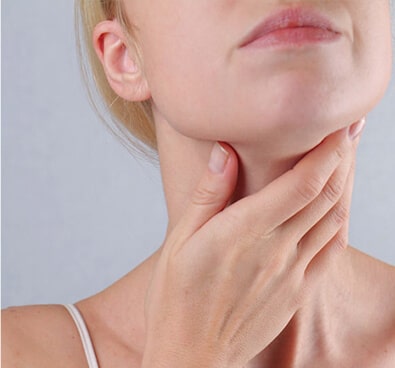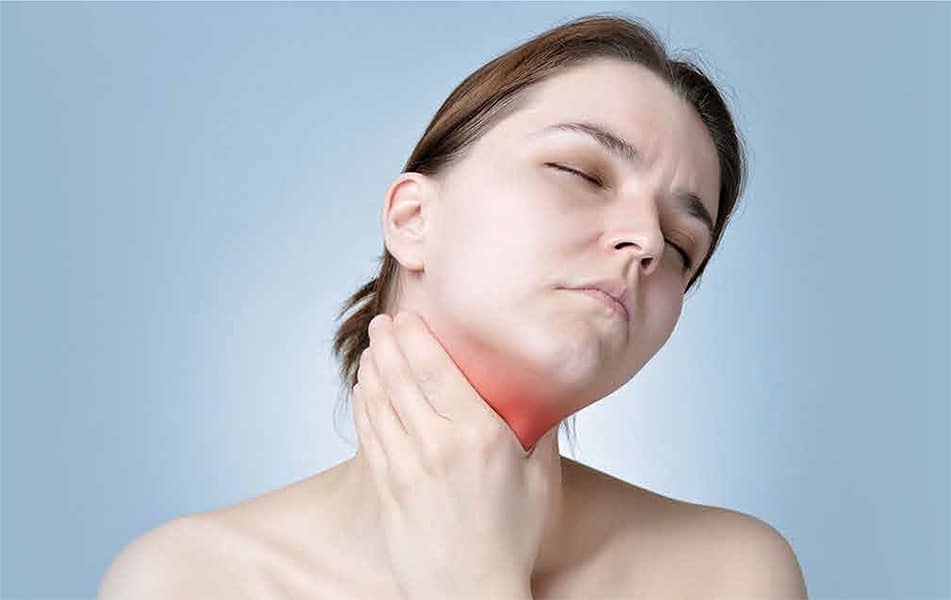Thyroid disorders can occur in many forms, but hypothyroidism is one of the most common. Symptoms of hypothyroidism are varied and can impact your entire body. Fatigue, dry skin, constipation, hair loss, reproductive problems, and many other symptoms characterize hypothyroidism. If you are interested in hypothyroidism natural treatment approaches, read on.

In the United States, hypothyroidism reportedly affects up to 10% of adults, with a potentially higher prevalence in older populations. Moreover, hypothyroidism usually presents as an autoimmune condition known as Hashimoto’s thyroiditis. One to two percent of the population of the U.S. has Hashimoto’s thyroiditis.
There are lifelong pharmaceutical solutions to hypothyroidism. But, not many people feel overjoyed when they hear that they may have to take a pill for the rest of their lives. This begs the question, are there natural alternatives to boosting your thyroid that consist of diet or lifestyle changes?
The good news is that there are!
The functional medicine approach to hypothyroidism is one way you can boost your thyroid without relying on a pill. It can help you find the healing you want and deserve.
What Does the Thyroid Do?
Let’s start with the basics of the thyroid gland.
It’s a butterfly-shaped gland that sits at the base of your neck. It affects metabolic processes and influences digestion, the heart, mood, brain development, and muscle control. The thyroid gland produces hormones that travel around the body through the bloodstream. These hormones are triggers for many bodily functions.
However, the thyroid gland doesn’t work by itself. The hypothalamus, a region in the brain, releases a thyroid-releasing hormone (TRH) which stimulates the pituitary, another region in the brain, to release thyroid-stimulating hormone (TSH). That stimulates the thyroid gland to make T3 and T4 thyroid hormones. When there are enough thyroid hormones in the bloodstream, TSH and TRH stop getting released. This system works in a loop to help keep your hormones balanced.
That’s why if something is off with your thyroid it can have a ripple effect on the rest of your body.
It’s also important to note that your environment can deeply impact your thyroid. For example, infections, life stress, iodine intake, smoking, certain medications, radiation, and environmental toxins can all increase your risk of developing hypothyroidism.
What is Hypothyroidism?
Hypothyroidism occurs when your thyroid is underactive and does not produce enough thyroid hormones. The underproduction of thyroid hormones can lead to a decrease in your metabolism which can lead to a myriad of symptoms. Some of the common symptoms of hypothyroidism include:
- Fatigue
- Brain fog
- Weight gain or weight loss
- Cold hands or feet
- Hair loss
- Constipation
- Poor concentration
- Infertility
- Low libido
- Depression
- Decreased heart rate
- Decreased body temperature
Hashimoto’s Thyroiditis
Hashimoto’s Thyroiditis is the leading cause of hypothyroidism and is an autoimmune disease involving chronic inflammation of the thyroid. It is characterized by the destruction of thyroid cells by various antibody-mediated immune processes. This dysregulated immune response impairs the production of thyroid hormones.
Hashimoto’s progresses very slowly over many years so oftentimes you may not notice any symptoms early on. Eventually, you will develop hypothyroid symptoms which may include fatigue, weight gain, constipation, increased sensitivity to cold, dry skin, depression, muscle aches and reduced exercise tolerance, and irregular or heavy menses. Sometimes, the inflammation causes the thyroid to become enlarged (goiter), which can cause neck discomfort or difficulty swallowing.
What is Subclinical Hypothyroidism?
On the other end of the spectrum is subclinical hypothyroidism. Essentially, this thyroid condition is when TSH levels are elevated while the other thyroid hormones T3 and T4 are in the normal range. While there is a bit of a controversy in the treatment of subclinical hypothyroidism and the use of medication, the functional medicine approach provides a good natural treatment for hypothyroidism. 
For example, some natural treatments for hypothyroidism strategies may help with low-functioning thyroid issues by using low-risk diet and lifestyle treatments. The goal of this approach is to address the root cause of the issue. In addition to a comprehensive thyroid panel, a functional medicine practitioner will evaluate a patient’s specific disease, lifestyle, comorbidities, and other important factors to create a treatment plan.
What is Hypoparathyroidism?
Here is another thyroid disorder you may not be aware of. Hypoparathyroidism is a condition in which the body produces abnormally low levels of parathyroid hormone (PTH). PTH is important for regulating and maintaining a balance of the minerals calcium and phosphorus. The parathyroid hormone comes from four parathyroid glands in the neck, just behind the thyroid. These glands receive feedback from blood calcium levels to determine when they need to secrete the hormone.
Too little parathyroid hormone causes a rare condition called hypoparathyroidism, which leads to low blood calcium levels. Parathyroid hormone problems rarely cause symptoms at the beginning of the condition, so ask your doctor about parathyroid hormone levels when having routine blood work done, especially if your calcium levels are disrupted.
Natural Treatment for Hypothyroidism

If you are interested in optimizing your lifestyle to achieve better health the functional medicine approach to hypothyroidism may be for you. This natural treatment of hypothyroidism is patient-centered and looks at the root cause of the disease. It looks at your mind, body, and spirit. It seeks to understand and address the underlying causes instead of only treating symptoms.
The functional medicine approach is…
- Patient-centered
- Integrative
- Health-oriented
- Addresses root cause
- Preventative approach
- Biochemical individuality
- Lifestyle and diet changes
Functional medicine recognizes that illness does not occur in isolation. A functional medicine practitioner will look at all the factors that contribute to your disease and address each one.
For example, through the functional medicine approach, you will receive interventions that focus on biotransformation, anti-inflammatory diets, specific nutrients, and optimizing gut and liver health to help restore thyroid hormone balance. You will also receive advice on the adequate intake and availability of micronutrients. For example, iodine and iron are crucial for thyroid hormone synthesis, while selenium and zinc are needed for the conversion of T4 to T3.
If you’re interested in learning more, meet our team of integrative practitioners here!























